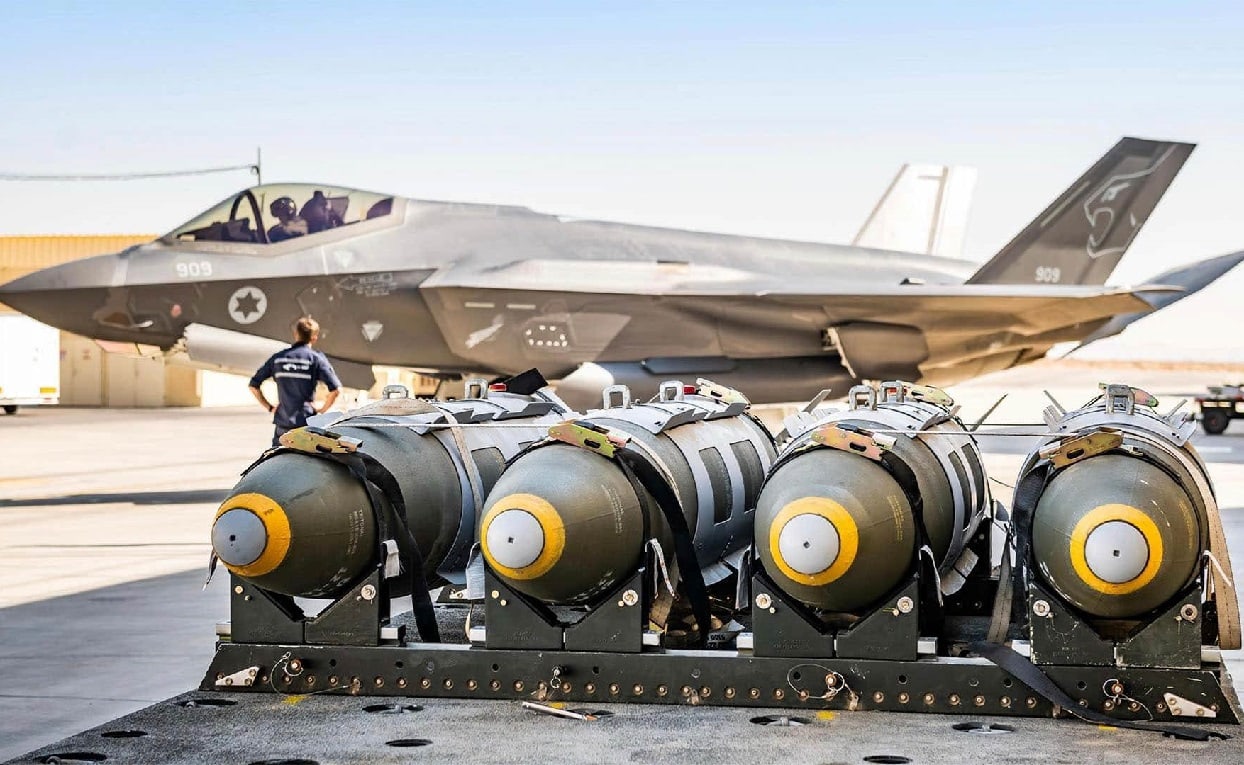Lebanese news outlets reported that anti-aircraft fire targeted a drone over the Bekaa Valley on Thursday night. According to The Jerusalem Post, initial reports suggest an Israeli drone was targeted and that the Lebanese-based Hezbollah group was responsible for the anti-aircraft fire.
This report comes as Israel and Lebanon negotiate to demarcate their maritime borders. Shortly before the reported incident, reports emerged in Lebanon that in light of the recent flare-up of hostilities from Gaza, the Israeli government’s interest in a mediated deal had declined. While prospects for a joint deal appeared promising last month, they might quickly be derailed.
Maritime Disagreements Are About Natural Gas
Israel and Lebanon have disputed their maritime borders since 2007, when a bilateral agreement between Beirut and Cyprus regarding their own maritime border opened the door for amending a zone between Beirut and Jerusalem. Over the years, Lebanon appeared to circumvent its deal with Cyprus. As outlined by the Washington Institute for Near East Policy, Beirut sent the United Nations an augmented list of claimed coordinates which deviated from the previously agreed upon Cyrus deal. Israel’s claimed northern maritime border, which it submitted to the UN in 2011, overlapped with Lebanon’s claimed area, igniting a dispute between the two countries that goes on today.
Acquiring gas reserves is a goldmine for any country, especially for those struggling economically. Lebanon has suffered from economic turmoil for years — the World Bank has even called the country’s dire situation “one of the most severe global crises.” Unlike its neighbors in the Middle East region, Lebanon does not possess its own domestic energy reserves. Hezbollah would be able to label any gained access to natural-gas reserves as a party win, ultimately strengthening their hold on the country. The desire to discover and profit off of gas reserves has only increased since Russia invaded Ukraine. Many European countries are seeking new sources for natural gas, as as the Kremlin has been isolated from the international community.
Hezbollah, an Iranian-backed Shiite militant organization that maintains a tight grip over on Lebanese society, has further complicated the maritime dispute with Israel. In July, Hezbollah launched three drones targeting Israel’s Karish gas field off the Mediterranean coast. Israel Defense Forces shot down the drones, which Hezbollah leader Hassan Nasrallah pledged were “only the beginning.” Nasrallah also threatened that “If the Karish oil and gas extraction starts in September, before Lebanon gets its rights, we would be heading for trouble.” The Hezbollah leader added that the organization “would do everything necessary to achieve our goal. No one wants war, and the decision is in Israel’s hands, not ours. The president of the United States does not want a war in the region, and that is our opportunity for us to press and achieve our oil.”
The Talks Are Progressing
Despite this escalation, by early August the maritime talks between Israel and Lebanon seemed to be making headway, according to Lebanese media. The Biden administration committed to oversee the negotiations, asserting that a finalized agreement appeared possible. The U.S. State Department said, “Reaching a resolution is both necessary and possible but can only be done through negotiations and diplomacy.” However, Lebanese officials have expressed a more pessimistic outlook this week. According to the Jerusalem Post, the Lebanese Al-Liwaa news outlet indicated that the possibility of an Israeli military operation in the country is strong, and that the response to such an action would be harsh.
Considering Hezbollah’s strong desire to achieve a “win” amid the maritime talks to garner more popular support and shore up potential lines of profit through natural gas reserves, an escalation seems likely. Perhaps Nasrallah will follow through on some of the organization’s threats to ignite kinetic conflict with Israel in the upcoming weeks.
Maya Carlin is a Middle East Defense Editor with 19FortyFive. She is also an analyst with the Center for Security Policy and a former Anna Sobol Levy Fellow at IDC Herzliya in Israel. She has by-lines in many publications, including The National Interest, Jerusalem Post, and Times of Israel.

